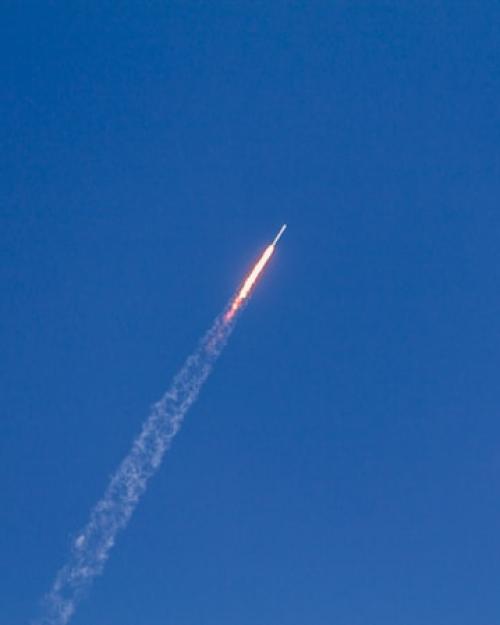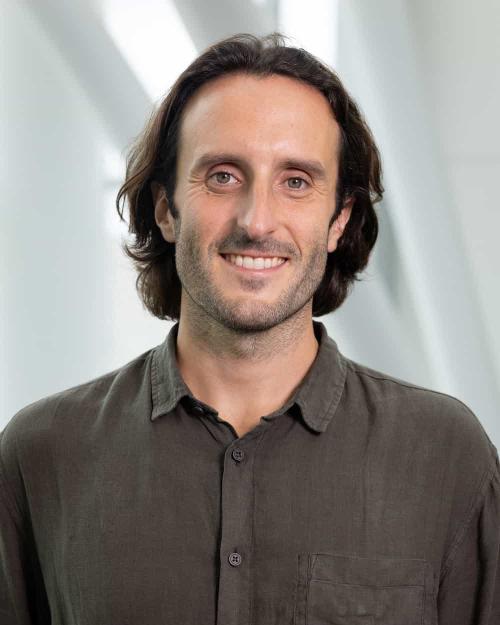Drummond Fielding
Assistant Professor, Astronomy
Academic focus:
I focus on the theoretical foundations of galaxy formation, with an emphasis on the complex magnetohydrodynamics and astrophysical plasma physics that influence the structure and evolution of galaxies. My research involves designing and running large-scale supercomputer simulations to investigate two key areas: the transport of cosmic rays and the role of galactic winds in shaping galaxy evolution.
Current research project:
I have two major research initiatives right now. The first is to understand how galactic winds regulate the evolution of galaxies. Galactic winds are powerful outflows driven by the successive explosion of numerous dying stars. These outflows remove potentially star forming material from galaxies and prevent new material from coming in, thereby limiting the continued growth of the galaxy. My work combines analytic theory and controlled numerical simulations to isolate and understand the key physical processes at play with hope of unveiling the inner workings of galactic winds and their interactions with the surrounding medium.
The second major research initiative is aimed at understanding cosmic ray transport. Cosmic rays, while low in number, have a combined energy density that rivals the kinetic, thermal and magnetic energy in galaxies, underscoring the significant role they can play shaping galaxies. As cosmic rays travel through galaxies, they scatter off magnetic irregularities. This scattering determines their escape from --- and feedback on --- astrophysical sources. Despite the importance of cosmic rays, they remain a significant challenge due to the theoretical uncertainties and observational inconsistencies in current models. I am using the largest supercomputers in the world to simulate the magnetized turbulent interstellar medium which allows me to test and develop new theories for this fundamental missing piece in our understanding of galaxy formation. Previous positions (include for each position, in this order: title, department, institution, and years worked) Flatiron Research Fellow, Center for Computational Astrophysics, Flatiron Institute, 2018-2024
Previous positions:
- Flatiron Research Fellow, Center for Computational Astrophysics, Flatiron Institute, 2018-2024
Academic background:
- Ph.D., Astrophysics, University of California, Berkeley, 2018
- B.Sc., Physics, Johns Hopkins University, 2012
- B.Sc., Mathematics, Johns Hopkins University, 2012
Last book read: "A Visit from the Goon Squad" by Jennifer Egan
In your own time/when not working: W
hen I'm not working, I enjoy playing tennis with my wife, going for runs or taking our dog for walks around the neighborhood. I'm also into cycling, from quick rides to longer bike-packing trips. I really love to cook, and when I can find the time, I enjoy making ceramics -- I'm hoping to find a local studio where I can throw some mugs and bowls on the wheel.
Courses you’re most looking forward to teaching: I can't wait to teach fluid dynamics. Fluids (which means anything that flows, so liquids, gases, and even plasmas) pervade the universe, and our daily lives, so it is a super fun subject to study and to teach because it is relevant to so many things. I am also excited to integrate modern computational methods into the course, which will allow us to explore fluid phenomena in new ways. This will be great for the students because it will expose them to the tools of the trade, and it is really fun to make beautiful visualizations of fluid flows!
What most excites you about Cornell: I'm thrilled about the opportunity to work with and mentor the incredible students at Cornell. I'm also looking forward to collaborating with the world-class faculty here, not just in astronomy but across disciplines. Plus, the opportunity to pursue my work amidst the natural beauty of Ithaca is very exciting.




